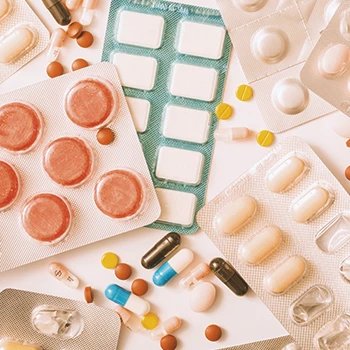Steroids can enhance your physique quickly, but their risks outweigh the benefits.
I discovered a case where a university student developed a fungal infection from prescribed steroids, highlighting a concerning trend among steroid users.
So, as a medical doctor, I teamed up with a group of college researchers and reviewed several published studies to get a definitive answer.
Quick Summary
- To prevent yeast infections, it's crucial to use steroids responsibly and maintain strict hygiene practices.
- Steroids, particularly corticosteroids, can suppress immune responses, increasing the risk of fungal infections like yeast infections.
- A significant outbreak in 2012 linked 751 cases of yeast infection to contaminated corticosteroid injections, according to a report published in Microbiology Spectrum.
- I believe the potential for severe infections should make anyone think twice before using steroids, especially without medical supervision.
Do Steroids Cause a Yeast Infection?

Yes, long-term steroid use can indirectly increase the risk of a yeast infection, especially in the case of corticosteroids.
Both anabolic-androgenic steroids and corticosteroids —especially the latter — have been known to cause fungal infection in many cases.
We’ll look at both these steroids, how they may cause an infection, and some research studies to back up the science.
Related Articles:
Corticosteroids
Corticosteroids are steroid hormones made either in the adrenal glands or synthetically.
According to the National Library of Medicine, they’re mainly used to treat inflammation and other illnesses [1].
However, many studies have found a strong correlation between corticosteroids and fungal infection.
Corticosteroids (like prednisone, hydrocortisone, and cortisone), inhaled or taken orally, are linked to an infection, especially with common bacterial, viral, and fungal microorganisms [2].
This is most likely because they suppress a proper and timely immune response to pathogens.
One of the largest fungal-steroid outbreaks in the US took place in mid-September 2012.
Academic journal Microbiology Spectrum cites that seven hundred fifty-one patients were reported to have succumbed to yeast infection due to contaminated corticosteroid injections [3].
While the steroid itself didn't seem to be the source of these complications, carelessness with the medication allowed it to develop the mold that caused complications.
In a 2019 clinical analysis, researchers examined the differences between topical steroid users and non-users. The study found symptoms of fungal keratitis were more common and serious in steroid users than non-users [4].
“Glucocorticoids are very commonly prescribed and the risks of infections with glucocorticoids may not always be discussed thoroughly.”
- Dr. Michael George, MD, Rheumatologist
Anabolic Steroids

The severity of fungal infection as a result of anabolic steroid use isn’t as strong as with corticosteroids.
But, in my experience, I’ve seen many anabolic steroid users succumb to bacterial infections on account of poor needle hygiene.
Many young steroid users, eager for quick results, share needles, which increases the risk of infections.
So, many of them end up taking anabolics together, and in one too many cases, they share needles.
So, it’s no surprise when they end up spreading diseases.
Researchers found that a number of anabolic steroid users contracted HIV, hepatitis B, hepatitis C, abscesses, and fungal endophthalmitis [5]. However, the researchers could track only one case of fungal infection. The other diseases had a higher count.
Are Yeast Infections From Corticosteroids Serious?
Yes, some infections caused by corticosteroids can be quite serious [6].
These include:
- Coccidioidomycosis (Valley fever)
- Cryptococcosis
- Histoplasmosis
- Pneumocystis pneumonia (PCP)
- Invasive candida infection
- Invasive aspergillosis
Steroid-Induced Hyperglycemia's Effect on Yeast Growth
Elevated glucose levels from steroids fuel yeast growth, necessitating a low-sugar diet to counteract this risk. Those on steroids must monitor their sugar intake closely, avoiding spikes that yeast feed on.
I recommend a strategic diet that minimizes the chance of yeast infections by limiting their growth environment and bolsters the body's defenses during steroid treatment.
A better way to go about your fitness journey would be to take only the best legal steroids that our Total Shape team has tried and tested for efficacy.
FAQs
Do All Performance Enhancing Drugs Cause Fungal Infection?
No, not all performance-enhancing drugs cause a fungal infection.
While many corticosteroids increase the risk of fungal infection, most of the infection risk from anabolic steroids usually comes from sharing needles.
How Do Steroid Users Prevent Infections?
Steroid users prevent infections by practicing good needle hygiene and using clean needles when injecting steroids.
However, this only decreases the likelihood of infection risk. Prevention comes from avoiding steroids altogether.
References:
- https://www.ncbi.nlm.nih.gov/pmc/articles/PMC1751559/
- https://www.mayoclinic.org/steroids/art-20045692
- https://pubmed.ncbi.nlm.nih.gov/27227303/
- https://pubmed.ncbi.nlm.nih.gov/31619199/
- https://pubmed.ncbi.nlm.nih.gov/10606223/
- https://www.cdc.gov/fungal/infections/immune-system.html
About The Author
You May Also Like






